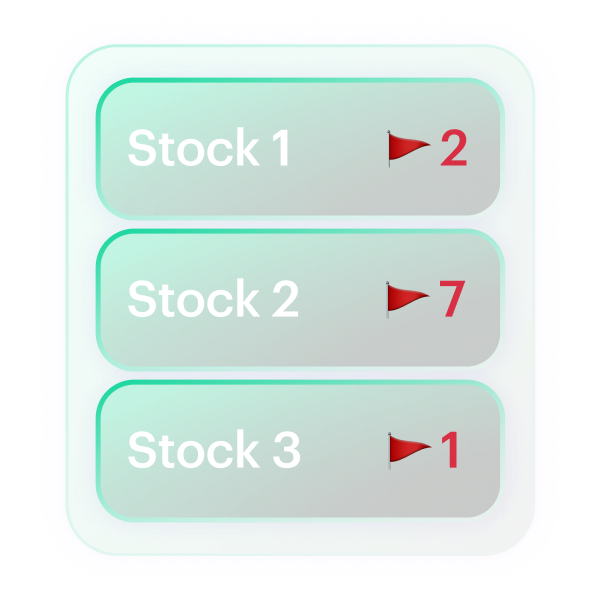Last Updated on Oct 18, 2022 by Vyshakh
Diwali is a new beginning. It is considered to be an auspicious day that brings a lot of positivity, joy, and success. Apart from gifts and sweets, it is a time for investing in stocks. Yes, you heard it right! But how? Diwali is a public holiday. And stock exchanges are supposed to be closed on holidays. The answer is the ‘Muhurat Trading’ session.
This trading session is an exciting opportunity to kick start your investment journey, given it is considered lucky. And fret not; we’ve got you covered with all the essential information you need to know! Let’s start with understanding what the term means.
Table of Contents
What is Muhurat Trading?
The term ‘Muhurat’ refers to the auspicious time. It indicates a time when all planets are aligned favourably for positive results. Muhurat Trading is a common ritual followed by traders in India for ages.
On the Diwali holiday, the Indian stock exchanges open for a one-hour trading session called Muhurat Trading. This time, it is on 24th October 2022. The stock exchanges specify the timings of Muhurat Trading every year.
Buying and selling stocks during this one hour is thought to bring the blessings of goddess Lakshmi, the goddess of wealth. It is also believed that if you invest during this time, there are high chances of amplifying riches throughout the year.
Well, isn’t that something? That is why many individuals buy equity on this day. Some even keep them for the long term and pass them down through generations.
Now that you have a basic understanding of Muhurat Trading, let’s dive into more details about this fruitful timing of investing.
Diwali Muhurat Trading timings 2022
According to the Hindu Calendar, this year, Diwali is on Monday, i.e. 24th October 2022. Here is a quick look at the Muhurat Trading time, 2022 for both BSE and NSE:
| Block deal | 17:45 to 18:00 |
| Pre-open session | 18:00 to 18:08 |
| Muhurat Trading session | 18:15 to 19:15 |
| Post-closing | 19:25 to 19:35 |
| Duration | 1 Hour |
The history behind it
Muhurat Trading has been practised on Indian exchanges for over a half-century. It was first organised by the Bombay Stock Exchange (BSE) in 1957. The National Stock Exchange (NSE), continuing the legacy, started holding Muhurat Trading in 1992.
For the investor community, this session marks the new year. Stockbrokers close the old ledgers and commence working on the new ones. Before this traditional trade session, stockbrokers perform ‘Chopra Pooja’ (worship of account books) at stock exchanges.
Amusing fact:
There are many faiths linked with this trade session. The first one was Marwari investors selling stocks during this muhurat as they believed money should not enter the house on this day. On the other hand, Gujarati investors bought the stocks during the session. But there is no data to back this up, and it is no longer true in the current times.
Why is Muhurat Trading hour important?
According to Vikram Samvat, one of the calendars followed by Indians, Diwali marks the start of a new financial year. This is one of the reasons why it is considered to be auspicious in India. The one-hour trading session brings investors from across the country together. This became a tradition a long time ago as traders would begin a new season by paying greetings to the goddess of wealth, Lakshmi.
The importance of this hour is signified by the investment flow and the day of the festival. It creates a perfect scenario for new players to enter the market with a bang. Additionally, since Diwali is considered a new accounting year by many, it invites establishments of all sizes to gear towards purchasing and selling stock options.
Every investor’s eyes are on the developments that happen in the market, hoping that investing during this time would bring them profits. Over time, the one-hour trading session on the day of Diwali has become more symbolic than cultural now. It is done in good faith, meaning that investors are channelling their funds, trust, and support for companies while wishing for their stellar performance.
However, as always, you should be careful when investing. Instead of blindly following Diwali trends, which could be mere speculations, it is best to do your research and invest accordingly.
Who can invest during the session?
Any and every investor/trader can participate during this session. But just because it is the muhurat, you should not invest blindly. Make sure to research and identify good stocks after carefully analysing them.
Process of Muhurat Trading
This trading session is divided into the following 5 components:
- Block deal session: During this, two parties decide to buy or sell shares at a predetermined price and notify the stock exchange.
- Pre-open session: Here, the exchanges set the equilibrium price before the market opens (usually about eight minutes).
- Normal market period: This is the one-hour session in which most of the trading takes place.
- Call auction session: This is when the illiquid shares are traded. If the security meets the criteria set by the exchange, it is classified as illiquid.
- Closing session: Here, traders and investors place market orders at the closing price.
Starting your investment journey on Muhurat Trading
Below are a few pointers to help you get started:
Step 1: Open a Demat account. This is to electronically store the shares you buy.
Step 2: Add funds from your bank account to your Demat account.
Step 3: Research your desired stocks. This would include looking at the stock’s historical prices, analysing the company’s financial statements, doing peer comparisons, and more. For easy access to such information, you can visit Tickertape. Make sure you pick stocks that have strong fundamentals, so they are able to weather market downswings in the long run and give decent returns.
Step 4: After your research, you are all set to start investing in stocks.
To ease your process of researching stocks, keep an eye on them through Tickertape’s active Watchlist. Tickertape allows you to connect your broker account with your Tickertape account. Doing this will help you invest in stocks directly from the Tickertape website or app. In fact, you can transact in not one but stocks of multiple companies by adding them to your Basket. Buying shares is now as convenient as shopping on an e-commerce site. Isn’t that comfortable to start and finish the process in one place rather than hopping from one website to another? So, don’t wait any further. Join Tickertape today!
Advantages of the session
- It is a good time to buy/sell shares as trading volumes are high during this session. High trading volumes indicate that there is a lot of interest or activity surrounding the stock market.
- It is considered an auspicious time, so if you are a first-time investor, you can start investing on this day.
- It is an excellent opportunity for seasoned intraday traders as the market is generally bullish during this session. But there have been times when the market saw a dip the very next day. So it is important to remain cautious and invest/trade after researching.
Things to keep in mind before Muhurat Trading
Here are a few aspects to be kept in mind before trading. They are as follows:
- All the open positions will result in settlement obligations at the end of the trading session.
- For the Muhurat Trading session, the market will only be open for that one-hour window.
- Keep an eye on the market, as it can be unstable during this session, so you can make wise decisions.
- Make sure you stick with the fundamentals of the company before you invest in a stock for the long term. From the past Muhurat Trading sessions, it has been observed that the rumours tend to spread quickly due to the excitement during the session.
- If you plan to capitalise on the volatility in the market, make sure to select stocks that have good trading volumes.
Conclusion
As established in this article, Muhurat Trading is an auspicious time for traders and investors. However, don’t blindly follow your peers or the market trends. The one-hour-long trading session is soon approaching. So, it’s time to #LightYourGoalsUp. If you haven’t prepared your stocks watchlist, now is the time to get started. Use the filters offered on Tickertape and screen stocks based on the metrics that suit you best. You can place multiple buy or sell orders via Basket and invest directly from there. Happy investing!
FAQs about Muhurat Trading
1. What is a Muhurat Trading session?
Muhurat Trading session is the auspicious stock market trading session for an hour on Diwali. It is a symbolic ritual that has been retained and observed for ages.
2. Is Muhurat Trading profitable?
Muhurat Trading has been a tradition for ages now. While many seasoned investors have made profits on this day, the whole idea of Muhurat Trading signifies the beginning of prosperity and wealth.
3. Is Intraday allowed in Muhurat Trading?
There are no restrictions for intraday trading on the day of Muhurat Trading. However, since the duration of the market is only 1 hour, you might not get plenty of opportunities that you would get on a regular trading day.
4. When did Muhurat Trading begin?
Muhurat Trading started offline in 1957 at BSE. The traders used to gather at BSE to trade during the special hour of Muhurat Trading.
- List of Liquid Intraday Stocks in India: High-Volume Shares for 2025 - Mar 11, 2025
- List of Swing Trade Stocks in India on NSE - Mar 11, 2025
- Penny Stocks Below 1 Rupee: Multibagger Penny Shares List (2025) - Mar 11, 2025




